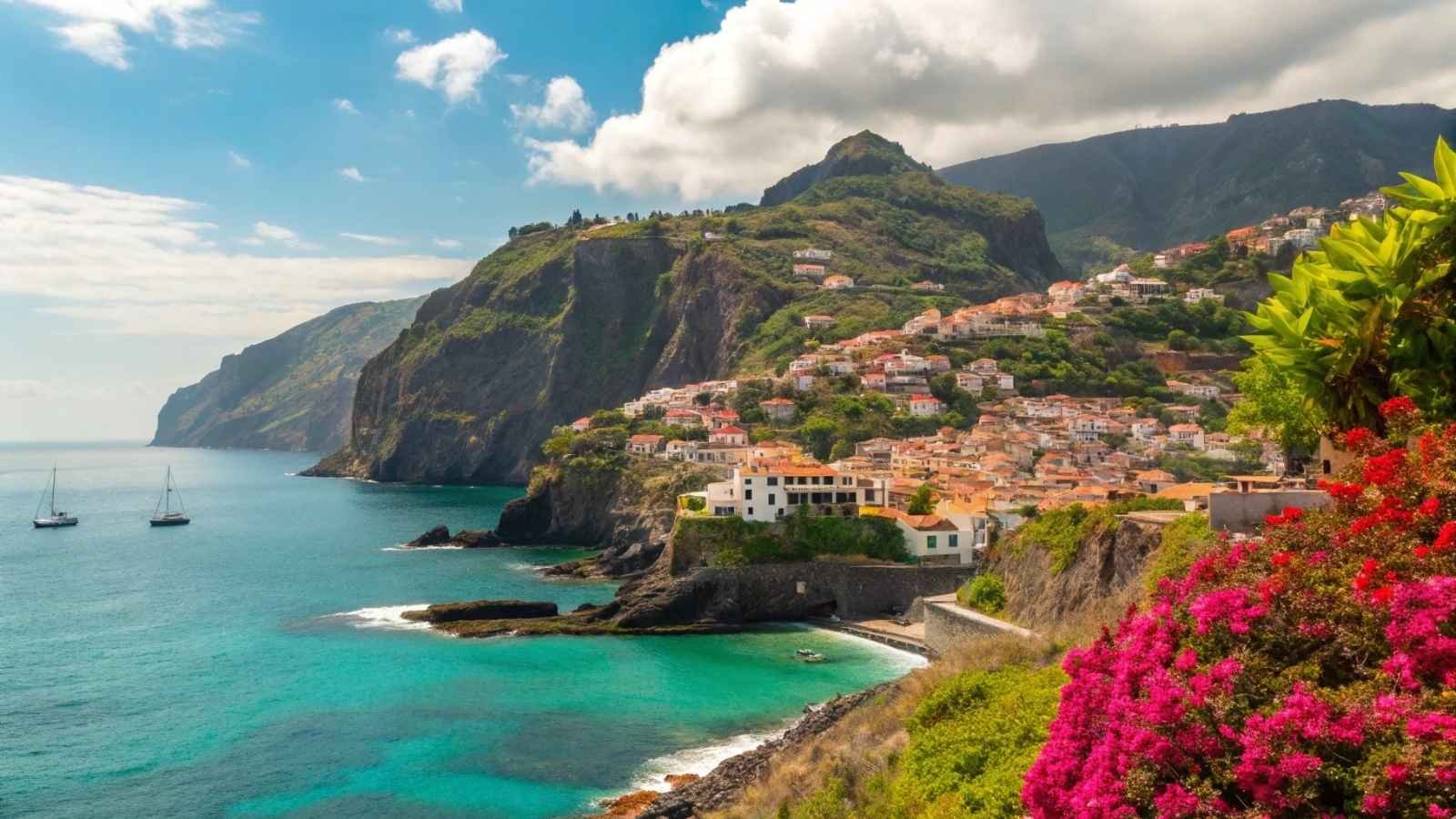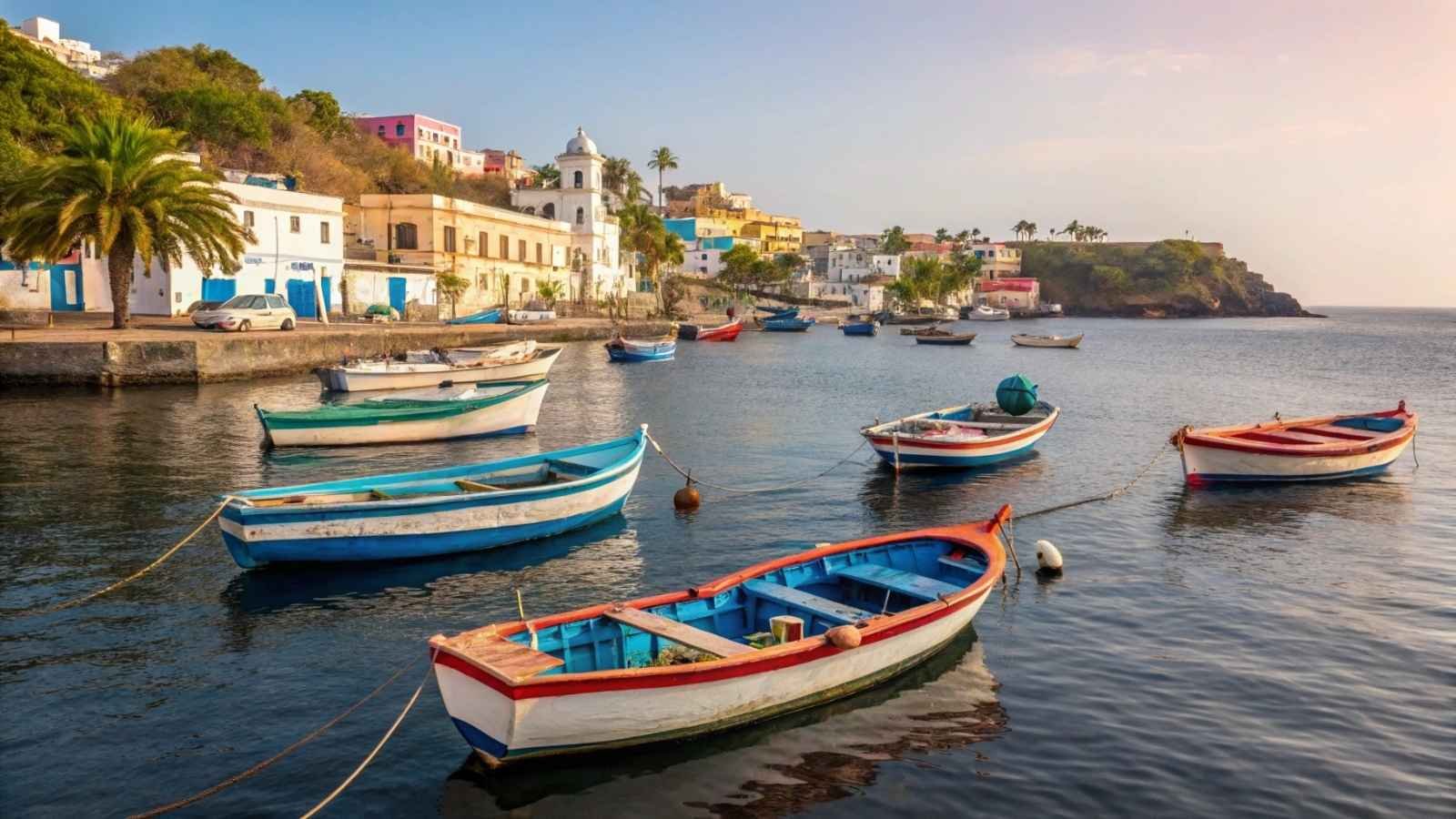
What if your next Zoom call came with the sound of waves in the background—and no tax bill at the end of the year? As the world embraces remote work, a new wave of visas is opening doors to something better than a vacation: a workcation.
Think sun-drenched mornings, stress-free cost of living, and a legal way to stay longer without jumping through bureaucratic hoops.
Whether you’re escaping burnout or just craving a view that isn’t your apartment wall, these programs let you live well and work smart. We’ve rounded up 10 of the best, each with its kind of magic.
1. Barbados Welcome Stamp

Barbados practically invented the modern “workcation” visa with its Welcome Stamp, and it’s still one of the best. It allows remote workers to live on this Caribbean island for up to 12 months, soaking up sun, sea, and solid Wi-Fi. What’s especially appealing is that you won’t owe Barbados income tax on foreign earnings, making this one of the few places to enjoy paradise and keep your paycheck intact.
The application process is refreshingly simple. You need proof of employment or self-employment, a valid passport, and an income of at least $50,000 annually. Within a few weeks, you’re approved—and potentially working with your laptop perched under a palm tree.
Barbados, as we all know, is a luxury resort destination, but the island also offers options for every budget, ranging from stylish beach apartments to a guesthouse found in the interior of the island serving as a home-away-from-home. There is a small yet growing remote work community on the island, so if you are traveling solo, it won´t feel a bit lonely.
Good to know:
- Best Months to Visit: December to April (dry season)
- Internet Speed: Avg.. 100 Mbps in most urban areas
- Application Fee: USD 2,000 (single), $3,000 (USD family)
- Tax Benefits: No income tax on foreign earnings
- Ideal For: Beach lovers, solo travelers, Caribbean explorers
2. Dubai Remote Work Visa

Dubai might not be the first place that comes to mind for a workcation, but it should be. Its Remote Work Visa offers one year of tax-free living, ultramodern infrastructure, and a lifestyle that blends desert adventure with high-end urban amenities.
This city is tailor-made for ambitious digital professionals. Co-working spaces are everywhere, cafés are laptop-friendly, and services run 24/7. The visa requires proof of remote employment and a minimum monthly income of USD 5,000, but in return, you get to live in one of the world’s safest, most efficient cities, with zero income tax.
Dubai also serves as a fantastic hub for regional travel. Want a quick weekend in the Maldives, Jordan, or Egypt? All just a short flight away. The city also offers a surprising amount of natural beauty, from pristine beaches to nearby mountains and desert camping.
Good to know:
- Best Months to Visit: November to March (cooler temps)
- Internet Speed: Avg.. 150 Mbps
- Application Fee: ~ $611 (includes processing, ID card)
- Tax Benefits: No income tax
- Ideal For: High earners, city lovers, Middle East explorers
3. Costa Rica Digital Nomad Visa

Costa Rica’s Digital Nomad Visa is meant for the type of adventurers who enjoy balancing working with jungle hikes, surf, and living the eco lifestyle. It grants eligible remote workers an initial stay between 12 and 24 months, renewable to indefinite leave without having to pay any foreign-sourced income tax.
Costa Rica is known for its Pura Vida lifestyle — an infectious, wellness culture of laid-back living — and that is what makes the country unique. Applicants need to make an average of at least USD 3000 monthly (or $4000 for families) and provide supporting evidence of remote work. The process is streamlined, especially with assistance from local lawyers or visa consultants.
You can choose your vibe: the cloud forests of Monteverde, the beaches of Tamarindo, or the volcano views in Arenal. And yes, the Wi-Fi’s solid enough to Zoom from any of these. Combine that with a warm culture and one of the world’s best healthcare systems, and it’s easy to see the appeal.
Good to know:
- Best Months to Visit: December to April (dry season)
- Internet Speed: Avg.. 70–100 Mbps in popular expat areas
- Application Fee: ~ $100 plus legal/translation fees
- Tax Benefits: No tax on foreign income
- Ideal For: Nature lovers, wellness-focused nomads, surf enthusiasts
4. Portugal D7 Visa (with NHR Tax Scheme)

Portugal’s D7 Visa, paired with its Non-Habitual Resident (NHR) tax scheme, is one of the most strategic choices in Europe for remote workers who want a mix of tax benefits and long-term stability. The visa itself was originally designed for passive income earners but is now widely used by freelancers, entrepreneurs, and remote workers.
Portugal offers a flat 20% tax rate for certain professions, and under the NHR scheme, foreign income like dividends, royalties, or remote salaries can be exempt from local taxes for 10 years. It’s not 100% tax-free for everyone, but it’s close enough to be a massive incentive. The minimum passive or recurring income required is around €760/month, but most applicants show much more to strengthen their case.
Lisbon and Porto are hotspots, but charming towns like Coimbra and Lagos offer even lower living costs. With Europe on your doorstep, reliable healthcare, and a culture that values slow living and good wine, Portugal makes “working abroad” feel more like living well.
Good to know:
- Best Months to Visit: May to October (sunny and warm)
- Internet Speed: Avg.. 100–150 Mbps
- Application Fee: €90–€120, plus legal costs if needed
- Tax Benefits: NHR tax regime (up to 10 years of exemptions/reductions)
- Ideal For: EU-bound professionals, long-term planners, wine-and-cheese lovers
5. Croatia Digital Nomad Visa

Croatia is quickly becoming one of Europe’s most desirable digital nomad destinations, thanks to its low cost of living, breathtaking Adriatic coast, and a one-year renewable visa for remote workers. Even better, you pay no local income tax if your income is from abroad.
This visa was launched with nomads in mind and requires proof of remote work and a monthly income of around €2,540. Croatia’s draw lies in its beauty and flexibility. Whether it’s working from a seaside café in Split or taking breaks to explore ancient cities like Dubrovnik, this is a lifestyle upgrade that doesn’t feel forced.
The locals are friendly, English is widely spoken, and the food? Think Mediterranean freshness on a Balkan budget. It’s ideal if you’re looking for a more relaxed pace without sacrificing modern comforts.
Good to know:
- Best Months to Visit: May to September (best weather and festivals)
- Internet Speed: Avg.. 70–100 Mbps (higher in cities)
- Application Fee: €60–€100 depending on location
- Tax Benefits: No local income tax for foreign earnings
- Ideal For: Europhiles, Adriatic coast fans, budget-conscious workers
6. Seychelles Workcation Retreat Program

If your idea of a workcation involves trading boardrooms for turquoise lagoons and lush jungle hills, Seychelles has the perfect proposition. Its Workcation Retreat Program is designed specifically for remote professionals, offering visa-free stays of up to 12 months, as long as you’re working for a foreign employer.
This Indian Ocean paradise doesn’t just sell sunshine—it’s also one of the most environmentally conscious countries in the world. You won’t find traffic or chain restaurants, but you will find coral reefs, Creole food, and the kind of tranquility that makes even your Slack notifications feel less stressful.
There are no income taxes on foreign-earned income here, and no complex paperwork. Just book a place to stay, show proof of employment, and you’re on your way. That ease makes it especially appealing for freelancers and solo entrepreneurs who want to unplug without going off-grid.
Good to know:
- Best Months to Visit: April to May, October to November (calmest seas)
- Internet Speed: 50–80 Mbps (best in Mahe and Praslin)
- Application Fee: Free (basic processing required)
- Tax Benefits: No income tax on foreign earnings
- Ideal For: Nature-focused workers, digital detoxers, island adventurers
7. Uruguay Digital Nomad Visa

South America doesn’t get nearly enough credit for its digital nomad appeal, and Uruguay is quietly becoming a standout. In 2023, it launched a Digital Nomad Visa that allows stays of 6 to 12 months, with a simple application process and no income tax on foreign earnings during your stay.
Montevideo, the capital, offers a European feel at a fraction of the cost. Think Parisian-style cafés, riverside promenades, and a surprisingly robust tech infrastructure. For those seeking something more relaxed, the beach town of Punta del Este is a remote work gem, especially in the Southern Hemisphere’s summer.
Unlike flashier destinations, Uruguay’s charm is in its quiet confidence. It’s one of the most politically stable countries in Latin America, has top-tier healthcare, and is famously progressive. If you’re the kind of remote worker who prefers mate over margaritas, Uruguay might just be your perfect workcation fit.
Good to know:
- Best Months to Visit: December to March (Uruguayan summer)
- Internet Speed: 60–100 Mbps in cities
- Application Fee: Low to none (online form + health insurance required)
- Tax Benefits: Exempt from tax on foreign income
- Ideal For: Culture seekers, South America explorers, laid-back professionals
8. Curaçao @Home in Curaçao Program

A Dutch Caribbean island with colorful buildings, warm waters, and an open-arm approach to remote workers? Yes, please. The @Home in Curaçao program offers digital nomads up to six months of residency, extendable to a full year, with no local taxes on foreign-earned income.
Curaçao is a bit of a hidden gem, which is how it likes it. It’s not very touristy, and it’s not over-the-hill like many other Caribbean gems you can visit. Most of the people on the island speak Dutch, English, and Papiamentu, with almost perfect infrastructure (for an island of its size).
The program is open to self-employed individuals and employees of foreign companies. What’s more, it’s incredibly laid-back. Fill out a form, upload a few documents, and you’re in. Combine that ease with snorkel breaks and sunset walks, and Curaçao starts to look like a very smart lifestyle move.
Good to know:
- Best Months to Visit: January to May (dry season)
- Internet Speed: 60–90 Mbps in populated areas
- Application Fee: ~ $300
- Tax Benefits: No tax on foreign income
- Ideal For: Caribbean-curious nomads, Dutch expats, peace-and-quiet seekers
9. Ecuador Digital Nomad Visa

Ecuador’s new Digital Nomad Visa is a hidden gem for 2025. The country is one of the lowest cost of living in all of America, with fast internet in big cities, and arguably the most biodiverse landscapes on planet earth — a nomad’s dream.
The visa is valid for up to 24 months, and the income requirement is just USD 1,275/month, making it one of the most accessible options on this list. Better yet, Ecuador doesn’t tax your foreign income, and many expat-friendly communities—like Cuenca or the coast of Manta—already have great infrastructure for remote work.
Imagine finishing a workday with a dip in a hot spring, a hike through the Andes, or even a boat ride into the Amazon. In Ecuador, you really can mix business with adventure—and keep your wallet happy while doing it.
Good to know:
- Best Months to Visit: June to September (Andean region), December to May (coastal region)
- Internet Speed: 50–100 Mbps in cities like Quito and Cuenca
- Application Fee: ~ $450
- Tax Benefits: No tax on foreign income
- Ideal For: Budget-conscious travelers, nature lovers, long-term planners
10. Greece Digital Nomad Visa

Rounding out the list is Greece, which combines ancient ruins, crystal-clear beaches, and a very attractive tax scheme for digital nomads. The country’s Digital Nomad Visa allows stays of up to 12 months, with an option to renew, and those who qualify can receive a 50% income tax break for up to 7 years.
What makes Greece stand out is the diversity of lifestyle options. Want a peaceful island retreat? Try Syros or Paros. Prefer vibrant urban life? Athens and Thessaloniki offer rich culture and fantastic food scenes. All of this comes with one of the most scenic backdrops in Europe—and yes, the sunsets are every bit as good as Instagram says.
The visa requires proof of remote work and a monthly income of at least €3,500, but the payoff is huge: a beautiful home base in the EU, with perks that go well beyond weather.
Good to know:
- Best Months to Visit: April to June, September to October (mild and less crowded)
- Internet Speed: 50–120 Mbps (fiber expanding rapidly)
- Application Fee: €75–€100
- Tax Benefits: 50% income tax reduction for up to 7 years
- Ideal For: EU dreamers, history lovers, Mediterranean foodies






